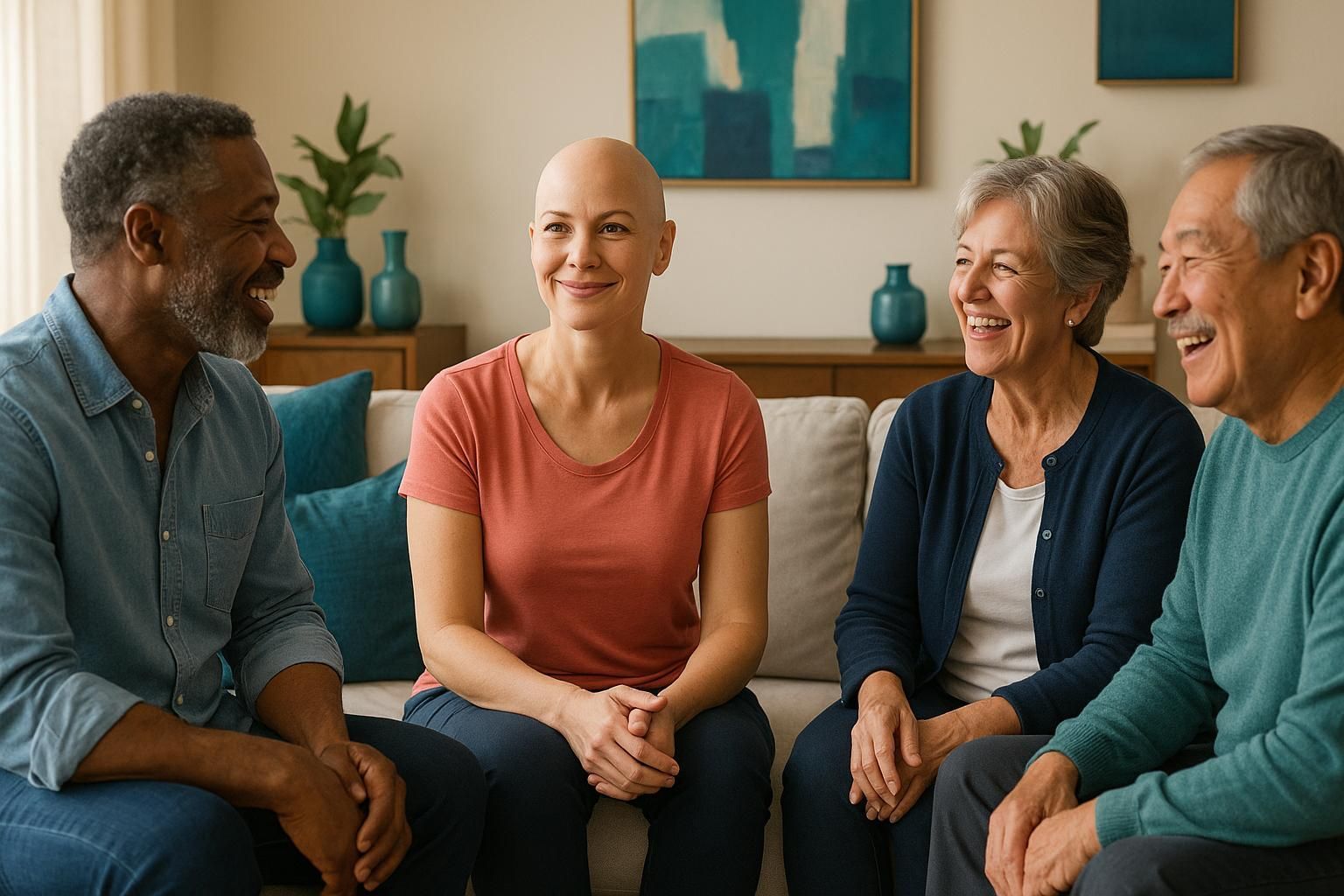Colonoscopy in Houston: Expert Care for Comprehensive Colorectal Screening
By Dr. Ritha Belizaire
Quick Insights
A colonoscopy is a procedure where a doctor uses a flexible camera to examine the inside of your colon (large intestine) to find and remove growths or detect cancer early. It plays a vital role in preventing colorectal cancer and is recommended even if you feel healthy, as early changes often have no symptoms.
Here's why this matters: According to leading research, colorectal screening with colonoscopy can reduce colorectal cancer deaths by up to 40% over ten years.
Key Takeaways
- Colonoscopy helps find and remove polyps (small growths) before they become cancerous.
- Proper preparation, like bowel cleansing, is crucial for effective and accurate results.
- Colonoscopy is considered safer and more effective than many other screening tests.
- Early colorectal screening significantly lowers your risk of developing or dying from colorectal cancer.
Why It Matters
Getting a colonoscopy can relieve anxiety about what's happening in your body. It helps you avoid painful symptoms or emergency surgery later. Most importantly, it empowers you to take charge of your long-term health.
Understanding the process makes it easier to overcome fear and prioritize your well-being—especially when expert, compassionate care is available every step of the way.
Introduction
As a board-certified colorectal surgeon serving Houston, I know the word "colonoscopy" can spark both curiosity and a bit of dread.
Let me explain what it really is. This procedure uses a thin, flexible camera to examine your colon's lining, searching for polyps or early signs of cancer. It's the gold standard for detection, catching silent changes before they become serious—often long before you'd notice any symptoms. At Houston Community Surgical, where busy schedules and health anxieties can make screening easy to delay, understanding what a colonoscopy is and why it matters can make all the difference.
Here's what the research shows: Screening with colonoscopy can reduce your risk of dying from colorectal cancer by up to 40% over ten years, according to recent clinical trials from UCSD. That's not just a statistic—it's a second chance for thousands of families.
If you've been putting this off, you're not alone. Let's take a closer look at how this simple step can protect your health and peace of mind.
Understanding the Procedure: What to Expect
A colonoscopy (a procedure using a thin, flexible camera to examine the colon) is the gold standard for finding and removing polyps (small growths) and detecting early signs of colorectal cancer.
During the procedure, I guide a slender tube with a camera through your rectum and colon, carefully inspecting the lining for anything unusual. If I spot a polyp, I can remove it right then and there—often before it ever has a chance to cause trouble.
How Colonoscopy Detects Cancer and Polyps
Colonoscopy allows me to see the entire length of your colon. This means I can find even tiny polyps or early cancers that other tests might miss.
Removing these polyps during the procedure is one of the most effective ways to prevent colorectal cancer. In my experience serving Houston-area residents, catching these changes early makes a world of difference for your long-term health.
According to research, colonoscopy is recognized for its high efficacy and low complication rate, making it the reference standard for colorectal screening in the medical community.
Why Is Colorectal Screening Important?
Colorectal screening is essential because colorectal cancer often develops silently, without symptoms, until it's advanced.
By the time you notice changes like bleeding or abdominal pain, the disease may already be more difficult to treat. That's why I recommend colorectal screening even if you feel perfectly healthy.
Here's what the numbers tell us: Screening with colonoscopy can reduce your risk of developing colorectal cancer and lower your chances of dying from it. A large population study found that people who underwent colonoscopy for colorectal screening had a 10-year colorectal cancer risk of just 0.98%, compared to 1.20% for those who skipped screening. That's a small number, but it represents thousands of lives saved.
In my practice at Houston Community Surgical, I've seen how early detection not only saves lives but also spares people from more invasive treatments down the road. Colorectal screening is a simple step that can protect your health and your peace of mind.
Who Should Get a Colonoscopy in Houston?
If you're 45 or older, or have a family history of colorectal cancer or polyps, it's time to talk about colorectal screening.
Guidelines now recommend starting at age 45 for most people, but you may need to start earlier if you have certain risk factors.
Screening Guidelines by Age and Risk
- Average risk: Start at age 45 and repeat every 10 years if results are normal.
- Increased risk: If you have a family history, personal history of polyps, or certain genetic conditions, you may need to start earlier and screen more often.
- Symptoms: If you notice rectal bleeding, unexplained weight loss, or persistent changes in bowel habits, don't wait—schedule a colonoscopy right away.
According to expert guidelines, colonoscopy should be performed within 12 months for anyone with a positive non-endoscopic screening test or concerning symptoms.
In my experience, acting quickly when symptoms appear can make all the difference.
Special Considerations for Houston Residents
Living in Houston means you have access to rapid appointments and advanced care.
Houston is home to respected medical centers like Texas Medical Center, reflecting the city's leadership in healthcare. I offer same-day or next-day scheduling for urgent cases, and virtual second opinions for those who need extra reassurance before coming in.
If you're worried about insurance or logistics, my team is here to help you navigate the process. If you're ready to schedule a same-day consultation, reach out to our team for a seamless experience.
When to Seek Medical Attention
If you experience rectal bleeding, sudden unexplained weight loss, or severe abdominal pain, contact a physician immediately. These symptoms may signal a serious condition that needs prompt evaluation.
Benefits and Risks: What the Research Shows
Colonoscopy offers powerful benefits: it can find and remove precancerous polyps, detect cancer early, and reduce your risk of dying from colorectal cancer.
In my years as a colorectal surgeon, I've seen firsthand how this procedure changes lives for the better.
Research confirms that colonoscopy is the reference standard for colorectal screening, with high efficacy and a low complication rate. A study of over 84,000 people found that the 10-year risk of colorectal cancer was significantly lower for those who had a colonoscopy.
The quality of your colonoscopy also matters—higher detection rates by well-trained physicians are linked to lower risk of interval cancers.
Colonoscopy vs. FIT and Capsule Endoscopy
While stool-based tests like FIT (fecal immunochemical test) and colon capsule endoscopy are less invasive, they don't allow for immediate removal of polyps.
Colonoscopy remains the only test that lets me find and treat problems in one visit. However, for some people, alternatives may be appropriate—especially if you're unable or unwilling to undergo a colonoscopy.
Understanding Complications and Safety
Colonoscopy is generally very safe, but like any procedure, it carries small risks such as bleeding or perforation.
These complications are rare, especially when performed by experienced physicians using modern equipment. Gut Medical Journal 2025 I always discuss these risks with you beforehand and take every precaution to keep you safe.
How to Prepare for a Colonoscopy
Preparation is key to a successful colonoscopy. A clean colon allows me to see every detail and catch even the smallest polyps.
Inadequate prep can mean missed findings or the need to repeat the procedure.
Here's how to get ready:
- Follow the specific diet instructions I provide (usually clear liquids the day before).
- Take the prescribed bowel prep solution exactly as directed.
- Arrange for someone to drive you home after the procedure.
Research shows that adequate bowel preparation is critical for effective colorectal screening and reduces the chance of missing important findings. Guidance and support can also help reduce anxiety and improve participation rates.
I always encourage you to reach out with questions—no concern is too small.
Optimizing Bowel Preparation
- Start your prep early in the evening before your procedure.
- Drink plenty of clear fluids to stay hydrated.
- Avoid red or purple liquids, which can look like blood during the exam.
Tips for Reducing Procedure Anxiety
- Ask me any questions you have ahead of time—I'm here to help.
- Bring a friend or family member for support.
- Remember, sedation will keep you comfortable during the procedure.
In my practice, I've found that a little reassurance and clear instructions go a long way in making the process less stressful.
What to Expect During and After the Procedure
On the day of your colonoscopy, you'll check in, change into a gown, and meet with me to review the plan. I'll answer any last-minute questions and make sure you're comfortable.
Sedation and Comfort Measures
You'll receive sedation to help you relax and stay comfortable. Most people remember little or nothing of the procedure itself.
I use the latest comfort measures—including gentle technique and, when appropriate, nitrous oxide for in-office treatments—to make the experience as easy as possible.
Recovery and Results Timeline
After the procedure, you'll rest in a recovery area until the sedation wears off. You can usually go home within an hour or two.
I'll review the findings with you and let you know when to expect biopsy results, if any were taken. Most people feel back to normal by the next day.
In my experience, patients are often surprised by how quick and painless the process is. My goal is to make sure you feel informed, respected, and cared for every step of the way.
Alternatives to Colonoscopy: What Are the Options?
If you're unable or unwilling to have a colonoscopy, there are other colorectal screening options.
These include:
- FIT (Fecal Immunochemical Test): A stool test you do at home, repeated annually.
- Cologuard (stool DNA test): Checks for abnormal DNA and blood in your stool.
- CT Colonography (virtual colonoscopy): Uses imaging to look for polyps.
- Colon Capsule Endoscopy: You swallow a tiny camera that takes pictures as it passes through your colon.
Recent research shows that the detection rate of advanced neoplasia is similar between colon capsule endoscopy and colonoscopy, but only colonoscopy allows for immediate removal of polyps.
I help you choose the best option based on your health, preferences, and risk factors.
Why Choose Dr. Ritha Belizaire for Your Colonoscopy?
As Houston's only dual board-certified general and colorectal surgeon, I bring both technical expertise and a compassionate, patient-first approach to every procedure.
My focus is on making you feel comfortable, respected, and confident in your care.
I offer:
- Fast access to appointments—often same or next day.
- Minimally invasive techniques and in-office treatments under nitrous oxide for select conditions.
- A commitment to clear communication and patient dignity, no matter how sensitive the topic.
Having performed thousands of colonoscopy procedures, I know that a gentle touch and a listening ear can make all the difference. My team and I are here to guide you through every step, from preparation to recovery, so you can take charge of your health with confidence.
What Our Patients Say on Google
Patient experiences are at the heart of everything I do as a colorectal surgeon. There's nothing more rewarding than hearing directly from someone whose journey I've helped make a little easier.
I recently received feedback that captures what we aim to provide—exceptional care, clear communication, and genuine support through every step. Here's how one patient described their experience:
"I recently had surgery performed by Dr. Belizaire, and I cannot express how grateful I am for the exceptional care I received." — Paulyann
You can read more Google reviews and see additional patient experiences here.
Hearing this kind of gratitude reminds me why compassionate, expert care matters—especially when it comes to something as important as colorectal screening.
Colonoscopy and Colorectal Screening in Houston
Living in Houston brings its own set of challenges and advantages when it comes to your digestive health.
Our city's diverse population, busy lifestyles, and access to world-class medical care mean you don't have to wait months for a colonoscopy or worry about finding a skilled colorectal surgeon.
Houston's high temperatures and air pollution levels, along with dietary patterns rich in red and processed meats, may contribute to increased colorectal cancer risk. Regular colorectal screening is essential for early detection and peace of mind.
Whether you're in the Medical Center or Upper Kirby, I'm proud to offer same-day and next-day appointments for urgent cases, as well as virtual second opinions for those who need flexibility.
The city's renowned institutions, including Baylor College of Medicine, demonstrate Houston's commitment to advanced medical care.
As a dual board-certified colorectal surgeon serving patients from Midtown Houston to West University, I'm committed to making high-quality, minimally invasive care accessible to our community.
If you have questions about colonoscopy or colorectal screening in Houston, call my office at 832-979-5670 to schedule a prompt appointment. Learn more about our Axonics sacral neuromodulation for fecal incontinence, an advanced treatment option we offer.
For those outside the area, virtual consultations are always available—so expert guidance is never out of reach.
Conclusion
Colonoscopy remains the gold standard for colorectal screening, offering the best chance to catch silent changes before they become serious.
In summary, early detection through colonoscopy can lower your risk of colorectal cancer and help you avoid more invasive treatments down the road. My dual board certification in general and colorectal surgery means you'll receive expert, compassionate care—whether you need advanced procedures like sacral neuromodulation, minimally invasive surgery, or just a little extra reassurance in the exam room.
I also offer in-office treatments under nitrous oxide for those who feel anxious about procedures.
If you're ready to stop worrying and start living with confidence, call me at 832-979-5670 for a same-day or next-day appointment in Houston. Not local? I'm happy to provide virtual second opinions at www.2ndscope.com—so you never have to face these decisions alone.
As a board-certified colorectal surgeon, my goal is to help you feel comfortable, respected, and in control of your health. Don't miss out on vital updates and information—subscribe to my colorectal health newsletter to stay informed.
This article is for educational purposes only and should not be used as a substitute for professional medical advice, diagnosis, or treatment. Always seek the advice of your physician or other qualified healthcare provider with any questions you may have regarding a medical condition or treatment options. Never disregard professional medical advice or delay in seeking it because of something you have read in this article.
Frequently Asked Questions
What is a colonoscopy, and why is it important?
A colonoscopy is a procedure where I use a flexible camera to examine your colon for polyps or early signs of cancer. It's important because it can catch problems before you ever notice symptoms, reducing your risk of colorectal cancer and helping you stay healthy for years to come.
Most people tolerate the procedure well and benefit from early detection.
Where can I get a colonoscopy in Houston, and how soon can I be seen?
You can schedule a colonoscopy with me in Houston, often with same-day or next-day availability. My practice is designed for quick access, so you don't have to wait weeks for answers or relief.
If you're outside Houston, I also offer virtual second opinions to help guide your next steps.
How do you help patients feel comfortable during sensitive colorectal procedures?
I know these topics can be embarrassing or stressful, so I focus on clear communication, patient dignity, and comfort.
For anxious patients, I offer in-office procedures under nitrous oxide, which helps you relax and makes treatments much more tolerable. My goal is to make every visit as easy and respectful as possible.
SHARE ARTICLE:
SEARCH POST:
RECENT POSTS:






